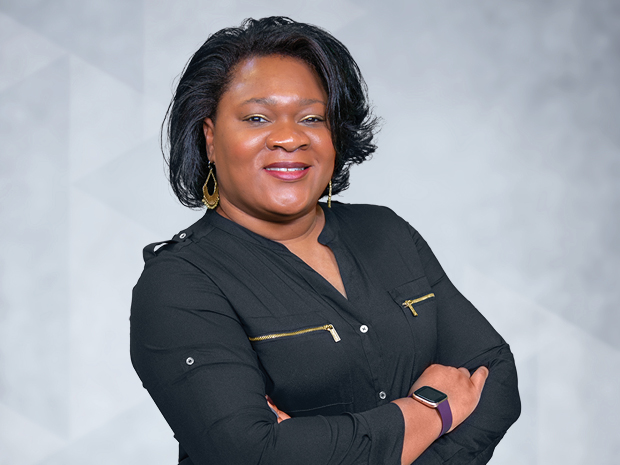Flowers and Floyd: It takes ‘tough skin’ and ‘pure determination’ to succeed in nuclear
February is Black History Month. We’re spotlighting some of our African American leaders who model high standards and are paving the way for others at SNC. Here, we’re focusing on Valencia Flowers, Chemistry manager, Farley, and Vanderian Floyd, Scoping and Testing manager, Vogtle 3&4.
When and why did you become interested in nuclear energy?
Flowers: I became interested in nuclear in the 1999 timeframe when I stopped at an Alabama Power/Southern Company booth at a career fair being held at my university. I was working on my master’s degree and was beckoned to the Southern Company table to learn about careers in the nuclear industry. I was shocked to find out that I could work in a lab at a nuclear facility as I didn’t know this avenue existed. It was at that point that I set out to learn more about nuclear plant chemistry.
Floyd: I started my career in nuclear once I graduated from Auburn University in 2006. I always had a desire to pursue challenges that many shy away from, but expanding my skills in electrical engineering and troubleshooting made nuclear energy a perfect marriage.
What does it take to succeed in the nuclear industry?
Flowers: Hard work, perseverance and dedication coupled with a willingness to learn. In my opinion, you also have to be slightly competitive and have tough skin.
Floyd: Pure determination to knock down any barrier preventing employee engagement in self-correcting poor standards. This involves having internal accountability before ever looking outward for help. Only the humble and the perfectionist desire a career in nuclear power.
Have you encountered any obstacles? How did you handle them?
Flowers: I haven’t really encountered anything that I would actually classify as an obstacle. However, I can say that over the course of the years, anytime that I’ve taken on a new role within the company, challenges have always come along with it. Those challenges can be real or perceived. For example: fitting in with a new team, creating new metrics, performing a new task, presenting material to audiences and so on.
To help prepare to meet the challenge before me, I typically brainstorm to come up with viable options. Once I have my plan/options/ideas on paper, I go forth and conquer.
Floyd: While obstacles come in various forms, the repetitive “opportunities” seem to always stem from encouraging the loudest talkers to take note of the silent solutions (i.e. the introverts). Overcoming my obstacles involves having an observant eye and constantly looking/listening for resolutions. No problem is unsolvable. I thrive on challenges that try to beat me.
What advice do you have for others who want to follow in your footsteps?
Flowers:
- Do your job and do it well.
- Be genuine, be you. You can’t be someone that you’re not.
- Be open and willing to learn. Practice active listening.
- Be accountable. Never be afraid of a challenge.
- Don’t let failure keep you down, learn from your mistake and move on.
- Development is deliberate and is not always glamorous.
- Be willing and open to serving others. Be optimistic.
Floyd: Yesterday’s performance has already peaked, so improve today to achieve tomorrow’s accomplishments. As nuclear leaders, we should keep searching for new talent. For anyone who views my path as success, I recommend they only learn how I have maintained because I have so much to improve.

